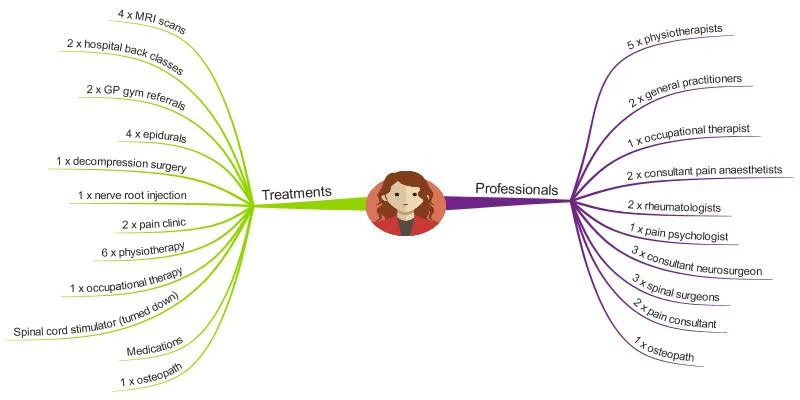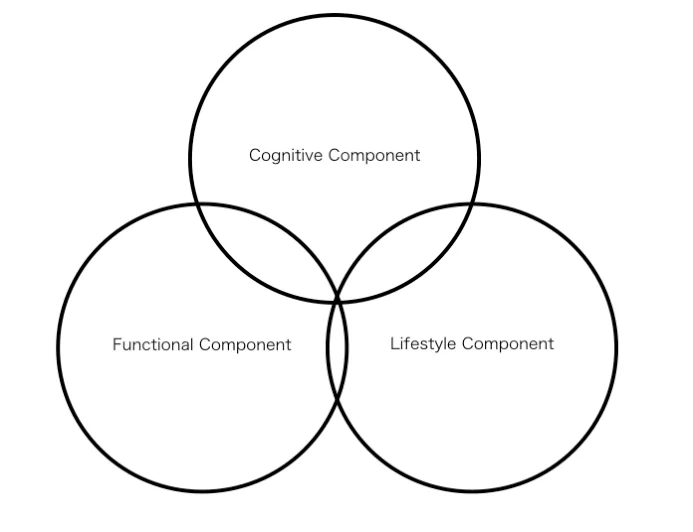Cognitive Functional Therapy

Cognitive Functional Therapy (CFT) is a type of physical therapy that is designed to help individuals with lower back pain improve their function and reduce their pain. This approach is different from traditional physical therapy, as it focuses on the patient's thoughts, beliefs, and behaviours that may be contributing to their pain experience.
Perception of Pain
CFT is based on the premise that the way a person thinks and feels about their pain can influence their physical function and recovery. Therefore, the therapy aims to address not just the physical symptoms of lower back pain but also the psychological and social factors that may be contributing to the pain.

In CFT, the therapist will work with the patient to identify their pain triggers and develop strategies to cope with them. The patient is encouraged to take an active role in their treatment, including setting goals, tracking progress, and practising exercises and movements that can help reduce pain.
Key Components of Cognitive Functional Therapy
One of the key components of CFT is the integration of cognitive-behavioural therapy (CBT) techniques. These techniques can help patients identify negative thought patterns and replace them with more positive and helpful thoughts. This approach can help patients reduce fear and anxiety related to their pain, which can ultimately lead to improved function and reduced pain.
Another aspect of CFT is the emphasis on functional movement. This involves teaching patients how to move in ways that are safe and efficient, with the goal of reducing pain and improving function. This may involve specific exercises or movements, as well as education on posture and body mechanics.

Cognitive Functional Therapy Effectiveness for Lower Back Pain
Research has shown that CFT can be an effective treatment for individuals with lower back pain. In one study, patients who received CFT had significant improvements in pain, function, and quality of life compared to those who received traditional physical therapy. Additionally, the benefits of CFT were shown to persist over time.
Cognitive Functional Therapy (CFT) was developed by a team of physical therapists and researchers from Australia, led by Dr. Peter O'Sullivan. Dr. O'Sullivan is a Professor of Musculoskeletal Physiotherapy at Curtin University in Perth, Australia, and has been a leading voice in the development and promotion of CFT as an effective treatment for chronic lower back pain.
CFT Research
Dr. O'Sullivan and his colleagues began developing CFT in the 1990s, based on their observation that traditional physical therapy approaches for lower back pain often fell short in addressing the complex interplay between physical, psychological, and social factors that contribute to chronic pain. They sought to develop a more holistic and patient-centered approach to treatment that would address these factors and promote functional movement.
Since the development of CFT, Dr. O'Sullivan and his colleagues have conducted numerous research studies to evaluate its effectiveness. These studies have shown promising results, with patients experiencing significant improvements in pain, function, and quality of life following CFT treatment.
One of the most well-known studies on CFT was published in the journal Spine in 2013. This study compared the effectiveness of CFT to traditional physical therapy for patients with chronic non-specific low back pain. The results showed that patients who received CFT had greater improvements in pain, function, and quality of life than those who received traditional physical therapy.
Dr. O'Sullivan and his team continue to conduct research on CFT and to promote its use as an effective treatment for chronic lower back pain. They have developed training programs for physical therapists and other healthcare professionals who wish to learn and implement CFT in their practice.








